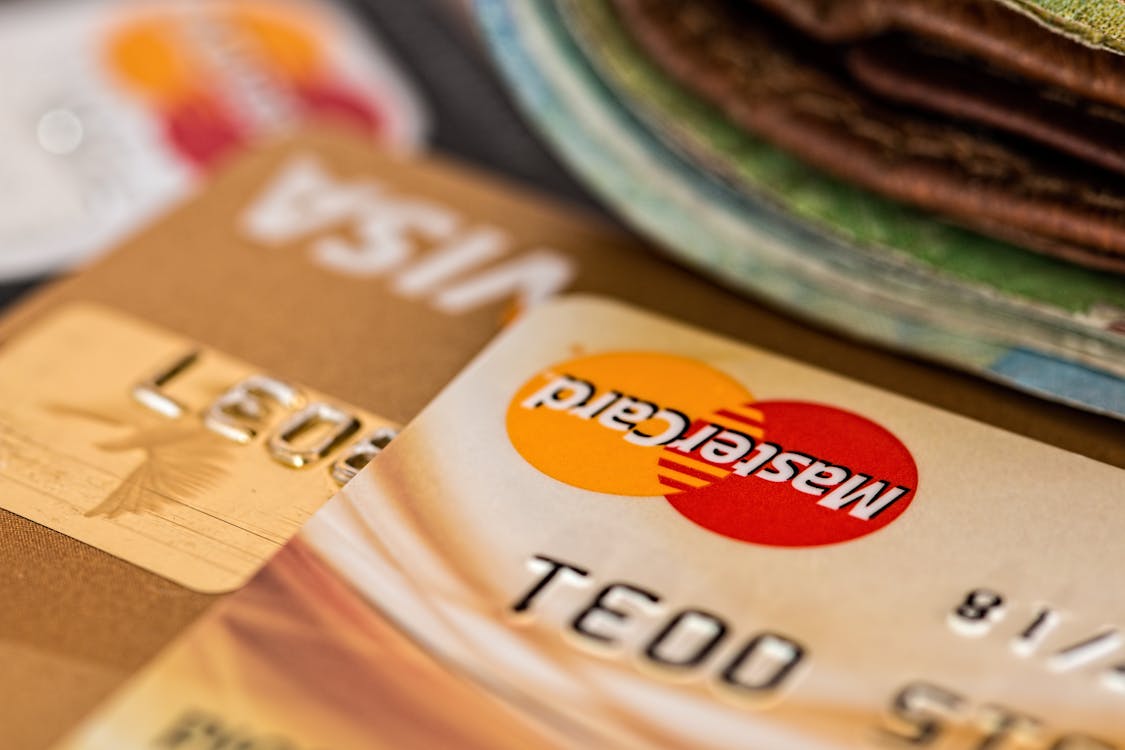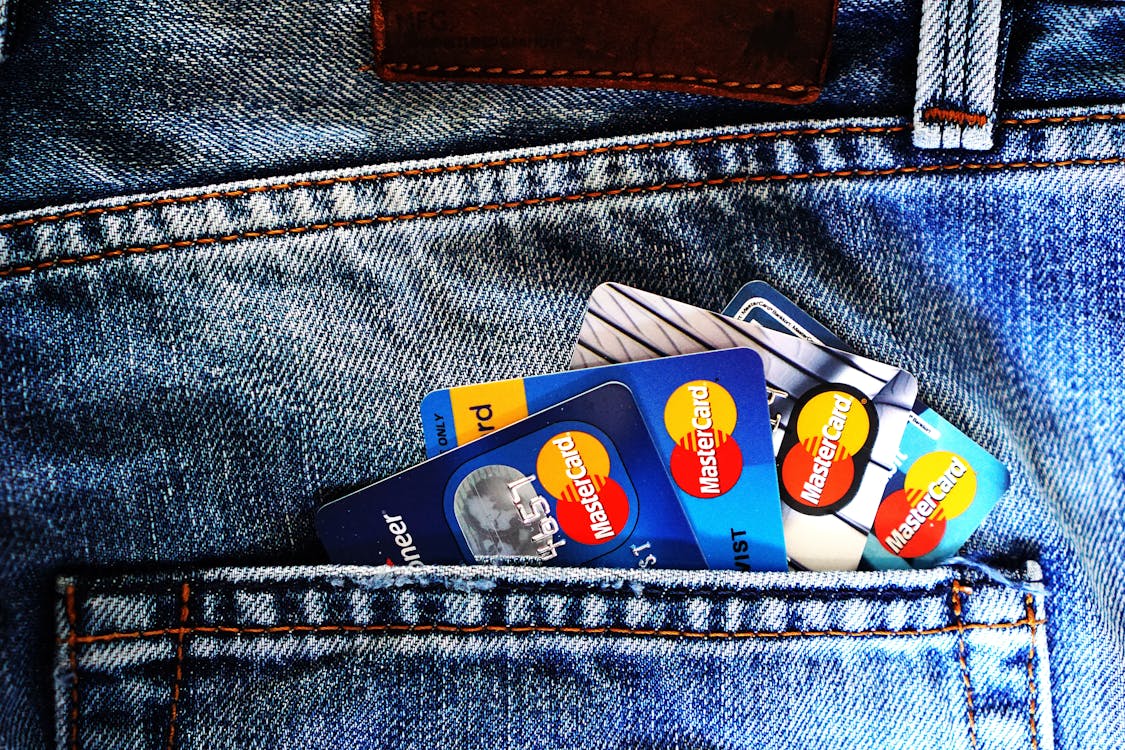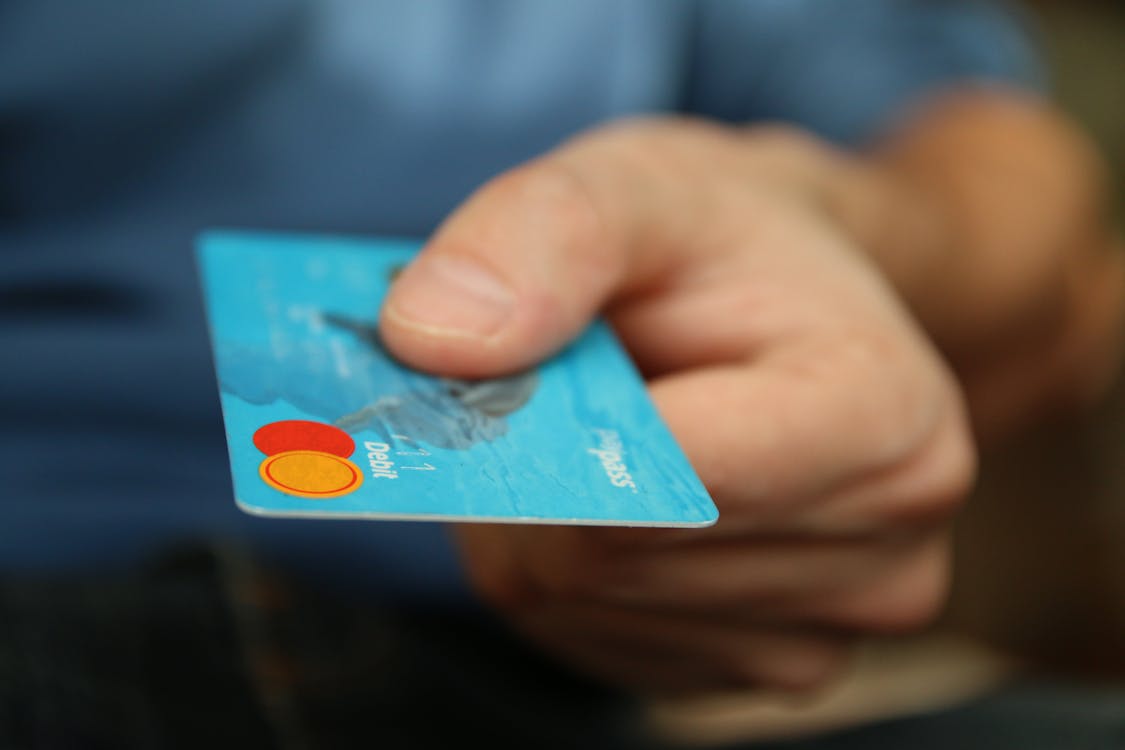A credit card is a thin rectangular piece of plastic or metal issued by a bank or financial services company, that allows cardholders to borrow funds with which to pay for goods and services with merchants that accept cards for payment. Credit cards impose the condition that cardholders pay back the borrowed money, plus any applicable interest, as well as any additional agreed-upon charges, either in full by the billing date or over time.
In addition to the standard credit line, the credit card issuers may also grant a separate cash line of credit (LOC) to cardholders, enabling them to borrow money in the form of cash advances that can be accessed through bank tellers, ATMs or credit card convenience checks. Such cash advances typically have different terms, such as no grace period and higher interest rates, compared to those transactions that access the main credit line. Issuers customarily pre-set borrowing limits, based on an individual’s credit rating. A vast majority of businesses let the customer make purchases with credit cards, which remain one of today’s most popular payment methodologies for buying consumer goods and services.
Advantages of using credit cards
Personal finance experts spend a lot of energy trying to prevent us from using credit cards and with good reason. Many of us use credit cards irresponsibly and end up in debt. However, contrary to popular belief, if you can use the plastic responsibly, you’re actually much better off paying with credit cards than with a debit card and keeping cash transactions to a minimum.
One-Time Bonuses
There’s nothing like an initial bonus opportunity when getting a new credit card. Oftentimes, applicants with good credit or excellent credit can get approved for credit cards that offer bonuses worth $150 or more (sometimes much more) in exchange for spending a certain amount (anywhere from $500 to several thousands of dollars) in the first several months the account is open.
Cash Back

The cash-back credit cards were first popularized in the United States, and the idea was simple: Use the card and get 1% of your purchases rebated in the form of cash back. Today, the concept has grown and matured. Now, some cards now offer 2%, 3% or even as much as 6% cash back on selected purchases, though such lucrative offers involve quarterly or annual spending caps. The best cash-back cards are those that charge minimal fees and interest, while offering a high rewards rate.
Rewards Points
Credit cards are set up to allow cardholders to earn one or more points per dollar in spending. Many reward credit cards provide bonus points for certain categories of spending like restaurants, groceries or gasoline. When certain earnings thresholds are reached, points can be redeemed for travel, gift cards from retailers and restaurants, or for merchandise items through the credit card company’s online rewards portal.
Safety

Paying with credit cards makes it easier to avoid losses from fraud. When your debit card is used by a thief, the money is missing from your account instantly. Legitimate expenses for which you’ve scheduled online payments or mailed checks may bounce, triggering insufficient funds fees and affecting your credit. Even if it is not your fault, these late or missed payments can lower your credit score. It can take time for fraudulent transactions to be reversed and money restored to your account while the bank investigates.
Disadvantages of using credit cards
Paying high rates of interest
If you carry a balance from month-to-month, you’ll pay interest charges. Purchase and cash advance interest rates can be as high as 22% APR, so you can end up paying hundreds or thousands more than you initially charged in interest if you’re unable to make repayments each month.
Credit damage
Missed credit card repayments and ongoing debts are recorded on your credit file and can impact your chances of getting a loan down the track.Credit card fraud. There are a range of fraud schemes that target credit cards. While you can be compensated for illegal transactions on your account, dealing with credit card fraud can still be a time-consuming and stressful experience. Scammers could use skimming devices, phishing techniques and other tricks to steal your credit card information and your hard-earned money.
Cash advance fees and rates
Financial institutions make it very expensive to use your credit card to get cash out or make other “cash equivalent” transactions, such as buying foreign currency or gambling. Using a credit card for a cash withdrawal will attract a cash advance fee worth around 3% of the total transaction amount. It also typically attracts an interest rate of 19–22% right away.
Annual fees

While you can often get debit cards without annual fees, most credit cards have them. Generally, the more perks you want, the higher the cost of the annual fee. If you want to avoid this charge, you can consider a no-annual-fee credit card
Credit cards surcharges
Businesses often apply a surcharge when you pay with a credit cards. For Mastercard and Visa products, this fee is usually 0.5–2% of the total transaction cost, but in this case, this is an extra cost for the convenience of paying with plastic.
Other fees can quickly add up
Depending on your card, you could be charged fees when you miss a payment, fees if you spend past your credit limit, fees for overseas transactions, balance transfer fees and even some rewards programs fees. If you carry a balance or don’t have access to interest-free days, there’s also a good chance interest will be applied to these charges.
Overspending
When talking about the pros and cons of credit cards, this is the classic downside. Some individuals can get easily carried away with their credit cards, creating a debt that is beyond their means to pay off.

Reason for cancellation of credit cards:
- You stopped using credit cards
Unused credit cards aren’t profitable for credit card issuers. And card issuers aren’t allowed to charge a dormancy or inactivity fee to cardholders who don’t use their credit cards for several months.
Sometimes closing a credit card is the better option for credit card issuers.
There’s no standard timeframe for credit card issuers to cancel unused credit cards. To be on the safe side, use all your credit cards every three or four months to keep them open and active. Setting up a recurring payment, like a streaming service can be an effortless way to keep your credit card open. Just make sure to make your payment every month.
- You stopped making payments
If you have an outstanding balance, the terms of your credit cards require you to make regular minimum payments. While your credit cards probably won’t be canceled after just one missed payment, a more serious delinquency can lead to a strained relationship with your credit card issuer.
Some credit card issuers will suspend your charging privileges if you’re 60 or 90 days past due and let you start charging again once you bring your account current. However, your credit cards will be charged-off and closed completely after 180 days or six months of non-payment.
- Your credit card store dropped
While creditors can’t increase your interest rate because of late payments on other accounts (unless the account is with that same credit card issuer), they can close your account completely if you appear at risk of defaulting.If your credit score starts slipping because you’re falling behind on your payments, your credit card issuers might start closing your credit cards.

- You rejected a rate increase or other change
Before a credit card issuer can make a pricing change to your credit card, like raising a fixed interest rate or annual fee, they must give you a 45-day advance notice. During that time period, you can reject the new credit card terms and choose to pay off your account under the old terms. However, many credit card issuers close your account if you decide to reject the new terms
Why should we stop using credit cards?
1. They can damage your credit score
Your credit score determines a lot more than what interest rate your mortgage will be. It will affect how much you pay for insurance (if you have bad credit, you’re more likely to commit fraud) if you can find a place to live (many apartment complexes check credit ratings to determine whether you are likely to pay your rent) and what jobs you can obtain (companies check credit reports to determine if you will be a good employee). If you accumulate credit card debt and lower your credit rating, you can expect to pay significantly more money than your friends who have good credit ratings.
2. They can come with universal default
Universal default basically states that if you make a financial mistake somewhere and it gets onto your credit history, the credit card company has the right to raise your interest rate to its highest level. You read that correctly. It doesn’t matter if the issue on the credit report has nothing to do with your credit cards. If you make a late payment on your garbage bill, your credit card rates may jump from their current rate to more than 30%.
3. They charge huge interest rates
Most investors would jump at the opportunity to receive a guaranteed annualized return of 15%. Credit card companies charge interest rates on some cards that more than double that rate, and when you are borrowing money with double-digit interest rates, it isn’t going to help your finances. Interest is wonderful when you are the one saving, but it’s the enemy when you are the one paying.

4. They come with numerous fees
While credit card companies make a lot of money on interest charges, they make nearly as much on fees. If you make a payment late, you can expect a hefty late fee. If you go over your card limit, you’ll have another fee added to your bill. If you want special-reward credit cards, you may need to pay an annual fee. If you want to transfer a balance from one card to another, you can expect a balance transfer fee. If you use your credit card outside the U.S., you’ll likely find a foreign-exchange fee. If you are not careful with your credit card, it’s possible to pay more in fees than in interest.




